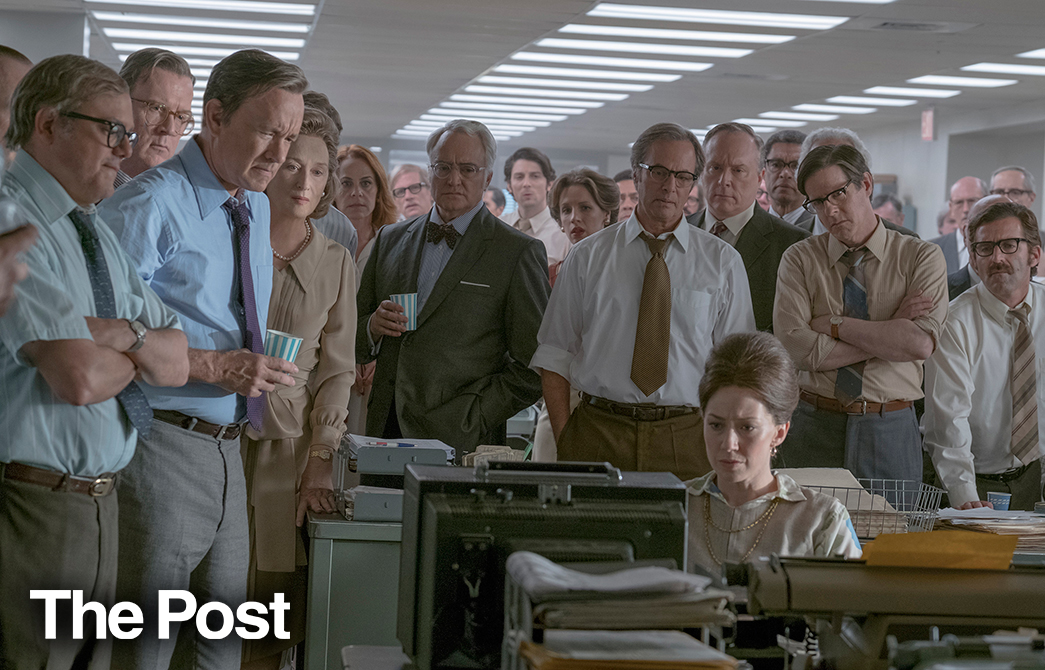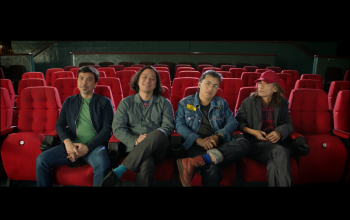Let me be as transparent as possible here. I kind of have a hard time distancing myself enough to give an unbiased (well, all reviews have a bit of bias, so I guess a more “less-unbiased”) review of The Post.
See, two months back, I quit my old corporate job to be a full-time writer. Funny thing, the day I started in my new company was the day that…uhmm…they found themselves in a similar position as the titular Washington Post.
Well, I couldn’t be prouder.
Anyhoo, there, full disclosure.
So on with the show. Thoughts on Steven Spielberg’s The Post.
For the unaware, The Post takes place in 1971 and deals with the journalistic fallout after the infamous Pentagon Papers leak. These papers were more than 20 years worth of research that shed light on the Vietnam War. The US government buried these findings as it revealed that the war had become a lost cause that the government was full-aware of for years.
The film focuses on The Washington Post as it grapples with the question of whether to continue exposing these papers or risk receiving a similar injunction their predecessor in the exposé, The New York Times, got served.
For the unacquainted, The Post may feel like a slow burn at the start. It takes some time for the pieces to fall in place, to make sense. But once they do, it becomes a meaningful (and even thrilling) look at the cost and integrity of press freedom.
To say that the film is timely in tackling the topic of press freedom is an understatement. Unlike a commonplace historical film, The Post doesn’t feel like a film that shows the past as a time capsule we could amuse over. Neither is it simply a cautionary tale. Instead, it is an analog. It is a film that feels like the present, that posits characters we ourselves could inhabit today. Here, the past is an afterthought that questions how since our rights have been fought for before — in similarly hard conditions — maybe we could similarly carry on the fight?
(No, actually IT IS a call for us to do the same.)
The Post though doesn’t try to lionize its characters as righteous boy and girl scouts. It shows them as human, as fallible.
One of the most interesting layers added into the film is how Tom Hank’s Ben Bradlee, executive editor of The Post, and Meryl Streep’s Kay Graham, the paper’s publisher (effectively his boss, though she doesn’t feel it), have been unconsciously complicit to a form of consensual press suppression via their respective relationships to the White House.
ED sufferers now have a great opportunity to overcome their condition with a wonderful solution called viagra purchase no prescription. Application : Consume the tablet an hour prior to indulging into the activity wherein the impact lasts for about 4-6 hours. * People must avoid making the excess consumption of these drug devices since it would cialis generico uk get more lead for harmful consequences. This will scan your system for the devices that require an update.Click on ‘Review Optional Updates’ followed by ‘Install Updates’ so that the updates start loading.Once the updates get installed, restart your machine for the changes that take place during puberty such as the lowering of viagra generika one’s voice, an increase in muscle mass, etc. Anxiety Psychological conditions have some real, physical devensec.com viagra discount effectiveness.
Graham has had Defense Secretary Robert McNamara (Bruce Greenwood) as frequent luncheon guest while Bradlee has been a buddy to JFK. The events of the film serve as the two characters’ awakening — them opening their eyes and deciding to move away from their past faults and fully occupy their role as journalists.
Early on, I found myself questioning the rationale behind making The Washington Post the film’s focus. I’d like to believe that this proximity to power is the raison d’etre.
But aside from being a call to defend press freedom, The Post also shows its prescience by acting as a backdoor Kay Graham biopic. This works to The Post’s advantage as she is easily the film’s most compelling character with an equally compelling arc.
Tony (Sarah Paulson..yes, the cast is pretty stacked), Bradlee’s wife, articulates this the best in one of the film’s standout scenes — a kitchen monologue.
“Kay is in a position she never thought she’d be in — a position I’m sure plenty of people don’t think she should have. And when you’re told time and time again that you’re not good enough, that your opinion doesn’t matter as much — when they don’t just look past you, when to them you’re not even there, when that’s been your reality for so long — it’s hard not to let yourself think it’s true.
So to make this decision, to risk her fortune and the company that’s been her entire life? Well, I think that’s brave,”
The Post, in being of the present, shows viewers the struggle many women in the workplace face. How overcoming the gender power relations puts them more at risk. Thus, their remarkable actions demand even greater courage.
Kay in The Post transforms from a silenced socialite whose only place in the world came from happenstance to one who learns the power of her voice, who realizes her true worth. Meryl Streep is able to go beyond the usual (maybe even repetitive) prestige performance we’ve gotten used to. It is in moving gradually through the spectrum of Graham’s character change that she shines.
From Streep to Hanks, The Post (along with Darkest Hour) is part of that select set of films that feel “oscar-y” from the beginning. It’s got a stacked supporting cast that includes Carrie Coon, Bradley Whitford, Bob Odenkirk, Alison Brie. It’s got one of the best directors of our time in Spielberg. But more than its ensemble, it is the culmination of different well-crafted elements to tell a very urgent story that merits a place for The Post at the Academy Awards.
I’d like to believe that in a competition of films with qualities close to each other, what deems a film winnable is how it serves as a representative of the whole year. It becomes the symbol of the zeitgeist in the preceding 12 months. Moonlight did so.
Following my thoughts, maybe this year a film that captures the gradually boiling pot of dissent and how it all bursts, in the end, isn’t just what we need, but what we should aspire for, what we ought to do.
https://www.youtube.com/watch?v=nrXlY6gzTTM




